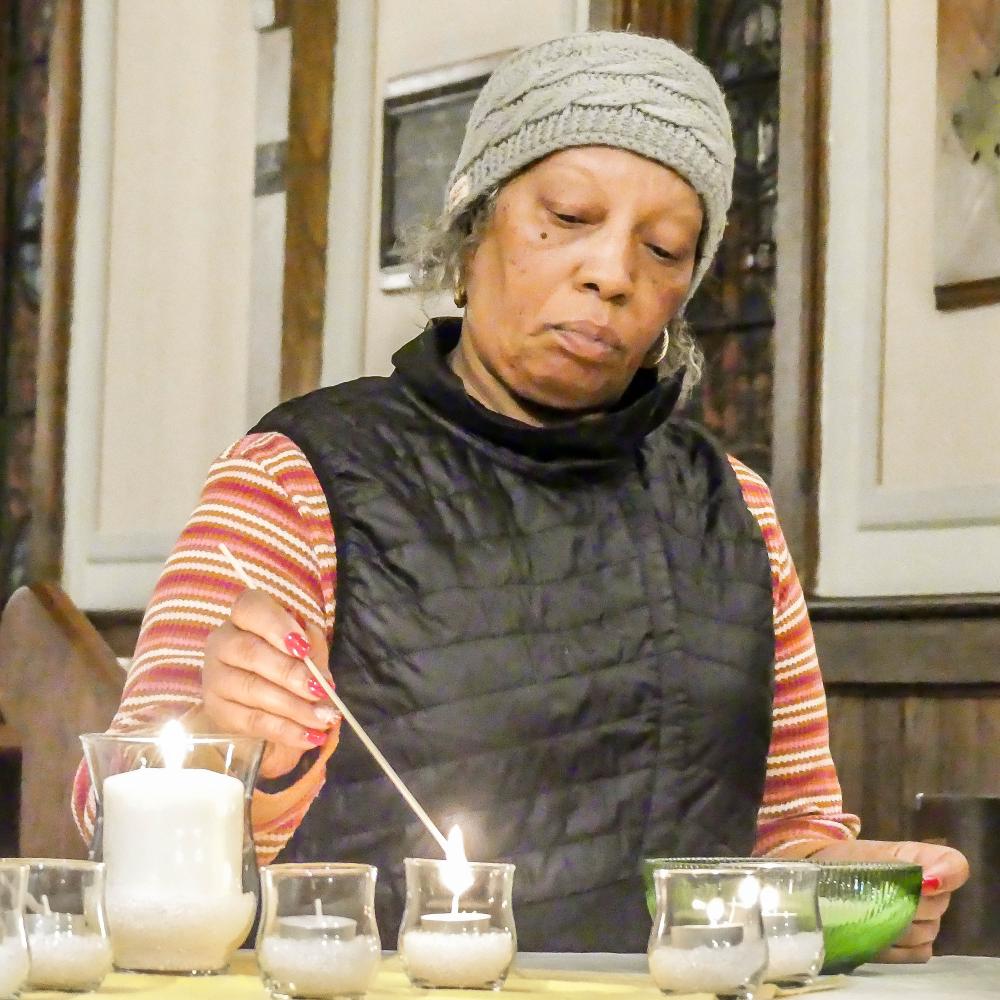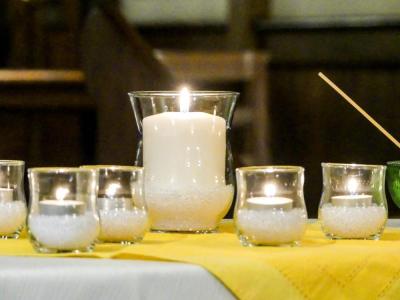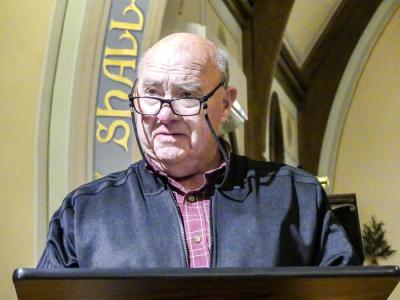Seven remembered amid growing housing crisis
This year, seven members of the Wareham community died while facing homelessness — and those are only the individuals the Wareham Area Committee for the Homeless is aware of.
Michael Bailey, Richard Boone, Sean Knox, Ava Leggett, Daniel McAssey, Richard Paulino and Caitlin Williams each had a candle lit in their memory at the Church of the Good Shepherd.
The vigil was held Thursday, Dec. 21, which is the day of the winter solstice — the longest night of the year, lasting 15 hours and 14 minutes. This day has also come to be known as National Homeless Persons’ Remembrance Day.
According to the town proclamation for the remembrance day, homeless individuals are three to four times more likely to die than the general population.
“In many cultures the winter solstice is a time for feasting and a celebration for — beginning tomorrow — each day will be a bit longer and each night a bit shorter,” Chuck McCullough, the committee’s chair, said at the vigil. “But we're not here to celebrate. We're here to remember those seven brothers and sisters who we as a community lost over the past year. We're here together to acknowledge the plight of our homeless neighbors facing, among other things, housing insecurity.”
A growing problem
“It’s growing,” McCullough said of the homelessness in the United States.
Amid the “nationwide housing crisis,” more people every year are unable to find a place to live and end up on the street or in an endless cycle of couch surfing, McCullough said.
According to the National Alliance to End Homelessness, on any given night in 2022, there were approximately 15,500 homeless individuals in the state of Massachusetts. This figure has risen by about 3% since 2007.
This year’s state homeless population is estimated at 20,000 people, but the reality could be closer to 30,000, according to McCullough. Of that population, it is believed that 25% are under the age of 17.
Over 30 of those individuals are chronically homeless right here in Wareham, according to McCullough.
Types of homelessness
In an interview, McCullough explained that the majority of those known to be facing homelessness in Wareham fall in the category of “chronic homeless,” but there are more who are considered “moving homeless.”
He said someone who is facing “chronic” homelessness has been living outside in the woods or possibly a shed from anywhere between two to 15 years.
On the other hand, someone who is facing what McCullough has coined “moving” homelessness may have a car they can live in or are couch surfing at the residences of friends and family. These individuals may have an easier time escaping homelessness within two to three years as they are more commonly employed.
McCullough said in partnership with Father Bill’s, Turning Point is able to keep track of most of the chronically homeless individuals.
“We think we have a fairly tight list of who's out there, their contact information and where they were last seen,” he added.
How to help
McCullough said although the homeless population is rising, the reality of what this experience is like in 2023 is not all that different from previous years.
Turning Point and similar organizations have been providing services, but most of that work falls into two categories: providing a listening ear and goods, according to McCullough.
“I'm not criticizing what we're doing,” he said. However, the work is focused on “helping them maintain their current lifestyle.”
This does not mean Turning Point doesn’t have its success stories of individuals escaping homelessness, but oftentimes, simply obtaining housing is not enough and without the right resources, many will inevitably return to the streets, McCullough said.
“I think we all do a pretty good job keeping in touch, providing meals, providing clothing, if necessary, sleeping bags — and that's what's been done for so many years, but we're not making strides in really transforming their lives,” he said.
McCullough said oftentimes, the homeless are ridiculed and stereotyped for substance abuse, which is what people commonly blame as the cause of homelessness. However, there are a variety of situations that may lead to housing insecurity, including a house fire, loss of employment and domestic violence.
As for those who are struggling with substance abuse, McCullough said, “People make wrong life choices,” but addiction is a disease that has been worsened by their circumstances. Without the proper resources, many individuals are stuck in their situations.
“There isn't one homeless person out there that decided one morning they want to be homeless and live freely and live in the woods,” he added.
McCullough said many homeless individuals struggle with their mental health, which is sometimes a result of their situation, but housing facilities lack support for that.
He argues supportive housing could be the key to helping a lot of people get out of their situation permanently. He said he is a strong supporter of boarding houses, which would include rooms, beds, common areas as well as 24/7 oversight with medicine management, meal prep and counseling.
“We all talk about affordable housing,” McCullough said. “That's not the only need that we have.”
McCullough said the organizations working on supporting the homeless should not look to the federal and state governments for solutions, but for funding.
He said, “Keep it local. Keep it targeted. It has a better chance to get done.”
“I'm convinced that together we can essentially eliminate homelessness and the South Coast,” he added.














